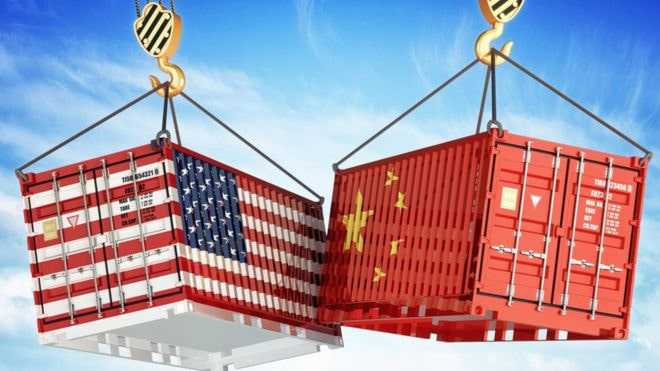
In the third article of year-end series, Apparel Resources discusses about the major international developments in 2019 that have impact on apparel export industry.
Indian apparel export industry is largely driven by conditions at global level and there are certain factors that will definitely play an important role in 2019. Finalisation of Brexit, US-China trade war, currency fluctuation, crude price volatility are some such factors that are on top of the list. Political upheavals in countries like France, Belgium and Netherlands can impact the public sentiments and this holds relevance considering these three countries, among EU, have good amount of apparel import from India.
The UK is on top as far as top 5 EU destinations are concerned for Indian exporters, and Brexit is in all probability to be finalised in March 2019. Indian apparel exporters are divided on this point as most of the exporters are of the view that it may or may not have a major impact and even if it does have an impact, it would be short-lived.
As per the official data, India exported apparels worth US $ 1,685 million from January to December 2017. A strong aspect is that Britain provided a gateway to EU until Brexit happened. This will affect India-UK bilateral ties. Many companies will now have to move to relocate their business set-ups at other places, but hopefully, Brexit will have a positive effect too. The results may just not show up immediately though. With the UK moving out of EU, it might not be as attractive to Indian firms as before.
However, the UK Government would not like to miss out on Indian investment and will thus try to attract Indian firms by offering more incentives such as tax breaks, easy regulations and opening up of markets. Though there is a lot of negative emotion towards Brexit at present, this will eventually evade as long-term benefits of Brexit will outweigh the short-term costs for India.
Three other countries of EU, France, Belgium and Netherlands are facing heat on various issues as public in these countries are on road with their demands. France is facing trouble on issues like inflation, the high cost of living, minimum wages, high petrol price and tax on pension. The yellow vests movement is one of the most violent movements in the country in last many years. The similar situation is taking place in Belgium and Netherlands which will have negative impact on overall economy of these countries.
It is pertinent to mention here that France ranks fourth among India’s apparel export to top 5 EU destinations. India’s apparel export to France was US $ 737 million in 2017 which was down by 9.71 compared to 2016. While India exported apparels worth US $ 182.77 million to Belgium and US $ 433.74 million to Netherlands.
The much-discussed US-China trade war might have some impacts too and there are various aspects of this issue. It can prove to be a major support but only in case if this war continues for long-term.
She further added that though this war might be indirectly helping India to boost its exports, it can also provide opportunity to other Asian competitors like Bangladesh, Vietnam, Cambodia and Pakistan to pick up their respective market shares in the US market. Almost all global apparel businesses more or less source from China. Furthermore, this war will affect the consumers with higher apparel costs.
Neighbouring country Bangladesh is not only a strong competitor for Indian exporters but also has a major role in India’s domestic market, as apparel import from Dhaka to India is constantly increasing. Growing Indian apparel and textile trade with Bangladesh can have some short-term impact as Dhaka is also going to have elections and business leaders of Bangladesh representing various apparel trade organisations reportedly maintained that they would like to see the political parties pledge to provide uninterrupted supply of gas and electricity while underlining that improvement of infrastructure should get special preference in the manifestoes for the general election scheduled for December 30.
The ruling party has approved a 51 per cent wage hike for garment workers, which will have an impact on the country’s garment industry, as Western customers will demand that prices be kept under control. This will, in turn, affect the country’s competition with other countries like Ethiopia, where labour is even cheaper.
Weakened rupee was a support for Indian exporters in 2018 and depending on global conditions, it can happen in 2019 too. Crude price, which is again one of the major factors in global economy, will also be under watch. Just few days back, OPEC (The Organisation of the Petroleum Exporting Countries) and Russia moved closer to cut oil production from next year. These developments will have some direct and indirect impact on Indian exporters in 2019.

Post a Comment